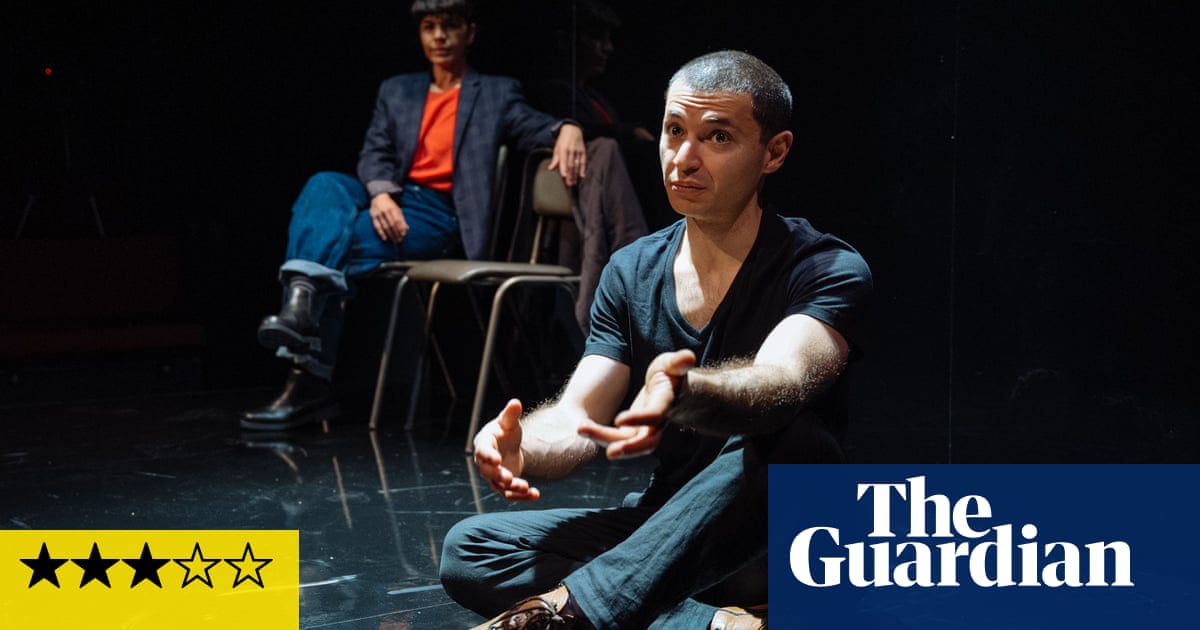Sarah Ruhl first knew Max Ritvo as a student of her playwriting class at Yale. He was a 20-year-old poet who had lived through paediatric cancer, Ewing’s sarcoma. The cancer came back and he died five years later but in that time Ruhl and Ritvo wrote letters to each other with thoughts on life, death, God, faith and nothingness. That became the basis of a book published in 2018, two years after Ritvo’s death.
Now adapted for the stage, they form a kind of modern-day Aristotelian dialogue, written by Ruhl (who previously wrote the epistolary play,Dear Elizabeth). Under the direction of Blanche McIntyre, Max (Eric Sirakian) and Sarah (Sirine Saba) variously become teacher and student for each other, and of life rather than merely playwriting. They walk past or around each other, not touching but sometimes in close proximity. The intimacies are in their words.
It is an aural experience above all else. You see the beauty and richness of these words and thoughts on the page. Rather than becoming emotionally devastating, it is a contained and cerebral piece. The poise has grace – but also emotional distance.
Dick Bird’s set design manifests the spiritual idea of looking through a glass darkly; there is a mirrored screen in the middle of the stage and the traverse seating arrangement sets up the same division. Sometimes, you see two versions of Max – the real and the mirror reflection. It builds visual metaphors on the abstruseness of life and death, albeit rather effortfully.
Saba is a compelling and solid presence on stage, deliberately holding back emotion as Max slides further into serious illness. Sirakian is initially playful and already slightly other-worldly. The programme tells us that Sirakian knew Ritvo at Yale – he was a fellow student in Ruhl’s class – which gives his performance an added layer.
Stunning cello accompaniment, composed by Laura Moody, acquires its own voice amid the spoken dialogue. There is a magnificent solo recreation of Philip Glass’s Einstein on the Beach, and a thrillingly atmospheric sequence of rainfall tapped on the wood of the cello to accompany a poem about rain.
While it certainly captures a sense of expressing the ineffable on stage, you do not get the mess of Ritvo’s emotions and his closest relationships (he suddenly announced that he is getting married out of the blue). There is something rather curated in this withholding. In a race against death, he is in a rush to get his poetry out, rather like John Keats in the face of TB (who also died at 25). You hear he is scared, as one strand of thought, and that he’s bitter, as another, but the play quickly returns to its intellectual topics, as if ballast against dangerously uncontained emotion. There is a singular moment of eruption, when he shouts “I DON’T HAVE TIME” and this stands out. It is startling, angry, real and felt.
AtHampstead theatre, London, until 28 June
